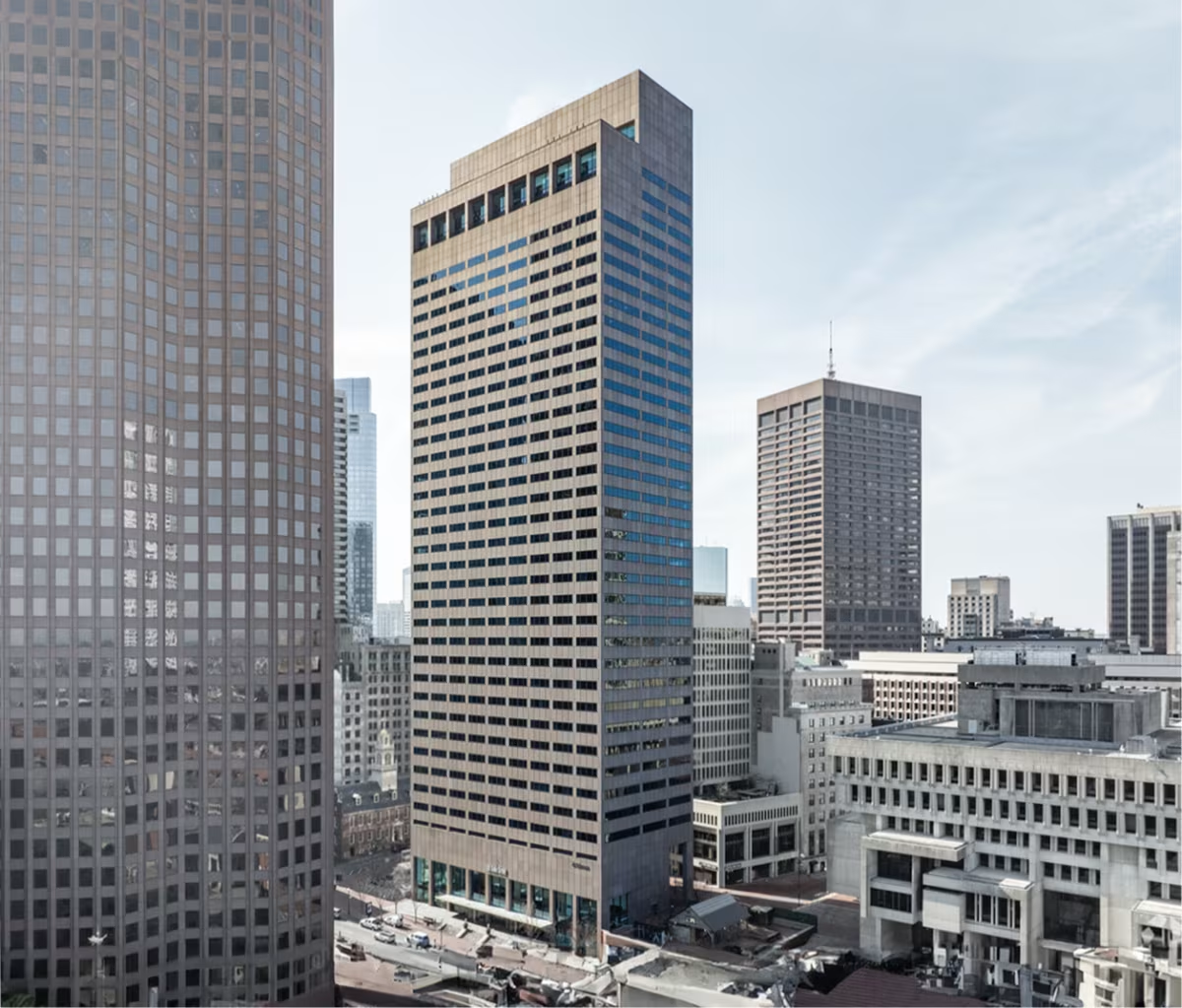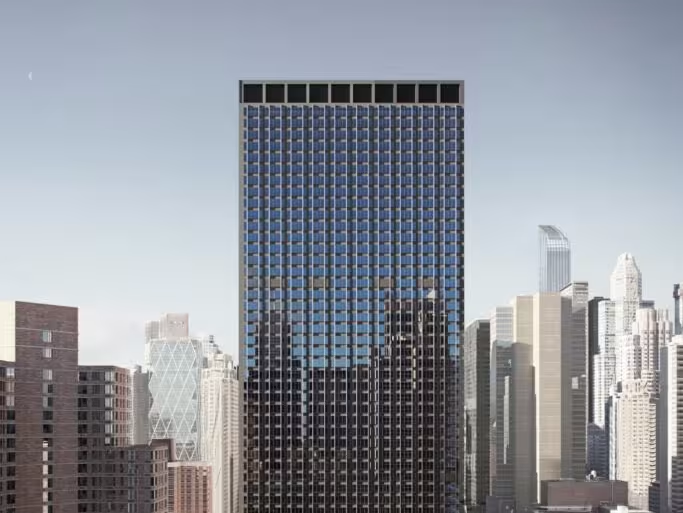28 State Street Building vs Paramount Plaza


Comparing the 28 State Street Building and the Paramount Plaza is an interesting exercise, because even though they are located in different cities (Boston, MA and New York, NY), both were designed by Emery Roth & Sons and finished within just one year apart. This gives us the chance to see how the same architect's ideas were expressed in different urban contexts almost simultaneously.
Height & Size
The Paramount Plaza is clearly the larger tower of the two, both in terms of height and number of floors. It rises to 669ft (204m) with 48 floors above ground, while the 28 State Street Building reaches 499ft (152m) with 40 floors above ground.
Paramount Plaza also offers more total built-up area, a total fo 2,500,002 sqf (232,258m2), which is about 1,928,008 sqf (179,118m2) more than what the 28 State Street Building offers.
Of course, each project may have faced different briefs or regulatory constraints, which we don't really know about and could also explain the outcome.
Architectural Style
The 28 State Street Building was designed in the Modern style, while the Paramount Plaza reflects the principles of International Style.
Both towers were built when their respective styles were already past their prime. This makes them feel more like late continuations rather than groundbreaking statements, showing how architectural traditions can linger even as tastes shift.Uses
Both the 28 State Street Building and the Paramount Plaza were designed to serve as commercial towers, and that has remained their main use since their completion, serving similar roles in the urban fabric.
Both towers provide significant parking capacity, with 28 State Street Building offering 120 spaces and the Paramount Plaza offering 200.
Structure & Facade
Both towers share the same structural solution, a Frame system.
A frame structure uses a grid of columns and beams to carry the building's loads. This frees the walls from structural duties, allowing for flexible floor plans and larger windows.
However, when it comes to the facade, both buildings use different approaches. The 28 State Street Building uses a Modular facade, while the Paramount Plaza uses a Curtain Wall facade.
A Modular facade like the one seen in the 28 State Street Building employs prefabricated panels, often mixing solid surfaces with smaller windows, while a curtain-wall facade like the one seen in the Paramount Plaza uses a lightweight glass curtain wall hung from the structure.
| 28 State Street Building | Paramount Plaza | |
|---|---|---|
| Emery Roth & Sons | Architect | Emery Roth & Sons |
| 1968 | Construction Started | 1967 |
| 1970 | Year Completed | 1971 |
| Modern | Architectural Style | International Style |
| Commercial | Current Use | Commercial |
| 40 | Floors Above Ground | 48 |
| 152 m | Height (m) | 204 m |
| 53140 | Built-up Area (m²) | 232258 |
| 7 | Number of Elevators | 42 |
| Frame | Structure Type | Frame |
| Steel | Vertical Structure Material | Steel |
| Reinforced Concrete | Horizontal Structure Material | Concrete, Steel |
| Yes | Facade Structural? | Yes |
| Granite, Glass | Main Facade Material | Glass, Steel |
| Cabot, Cabot & Forbes | Developer | Uris Buildings Corporation |
| MA | State | NY |
| Boston | City | New York |
| 28 State Street | Address | 1633 Broadway |